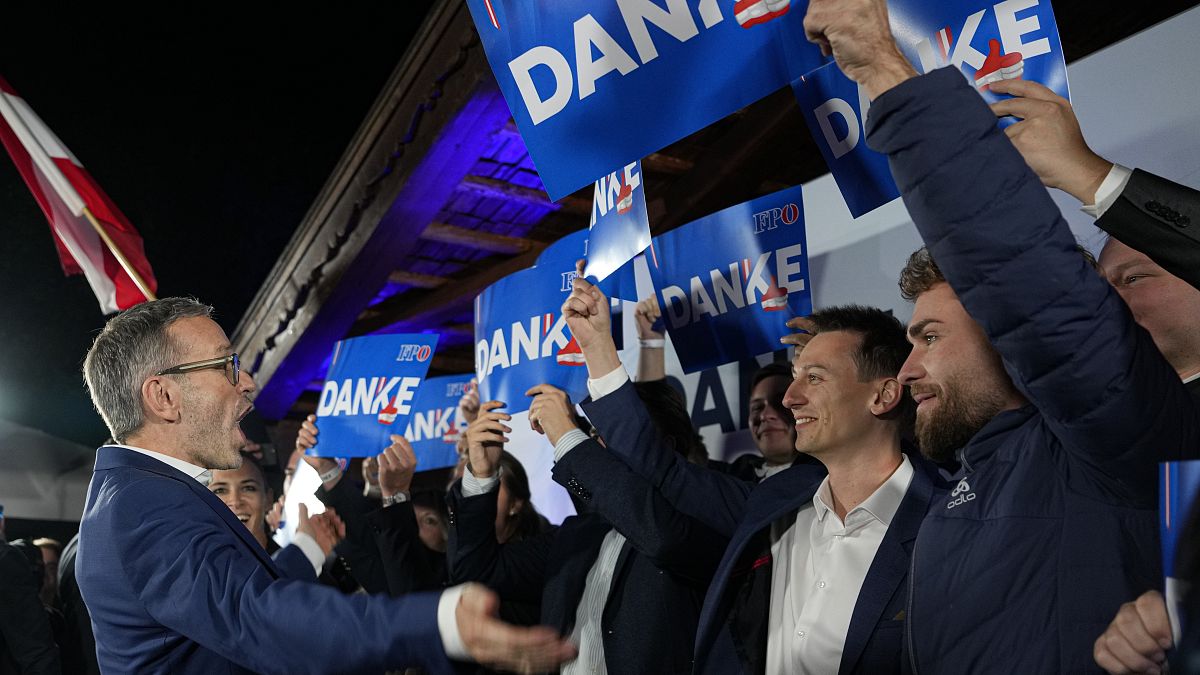The recent parliamentary election in Austria has marked a historic victory for the far-right Freedom Party, making it the first time a far-right party has won a parliamentary election in post-World War II Austria. With over 90% of the vote counted, the Freedom Party secured 29.2% of the votes, surpassing Chancellor Karl Nehammer’s Austrian People’s Party who came in second with 26.5%. The centre-left Social Democrats finished in third place with 21%. The outgoing government, a coalition between Nehammer’s party and the Greens, lost its majority in the lower house of parliament. This shift in power has opened the door to a possible new era in Austrian politics.
In his address to supporters in Vienna, Freedom Party leader Herbert Kickl expressed his excitement over the victory, calling it a “piece of history” that they have written together. Kickl emphasized the importance of this win, stating that they are now embarking on a new chapter in Austrian history. However, despite the party’s success, Kickl will need to form a coalition in order to command a parliamentary majority and become Austria’s new leader. While he has expressed openness to negotiations with other parties, his rivals, including Nehammer and Social Democrats leader Andreas Babler, have stated that they will not work with the far-right party. This could pose a challenge for Kickl in forming a government moving forward.
The surge in support for the far-right Freedom Party can be attributed to various factors, including frustration over high inflation, the war in Ukraine, and the ongoing COVID-19 pandemic. The party has also capitalized on concerns surrounding migration, with its election program titled “Fortress Austria” advocating for the remigration of uninvited foreigners and the tightening of border controls to create a more homogeneous nation. Additionally, the Freedom Party has called for the suspension of the right to asylum via emergency laws and an end to sanctions against Russia. The party is critical of Western military aid to Ukraine and aims to withdraw from the European Sky Shield Initiative, further emphasizing its nationalist stance.
Despite the Freedom Party’s victory, the outcome has sparked protests outside the parliament building in Vienna, with demonstrators denouncing Kickl with placards labeling him as a Nazi. The final official results of the election are yet to be published, pending the counting of a small number of remaining postal ballots that are unlikely to significantly alter the outcome. As the country awaits the formation of a new government, the political landscape in Austria is poised for change, with the far-right poised to play a significant role in shaping the future direction of the country. It remains to be seen how the Freedom Party’s win will impact Austria’s domestic and foreign policies moving forward.











